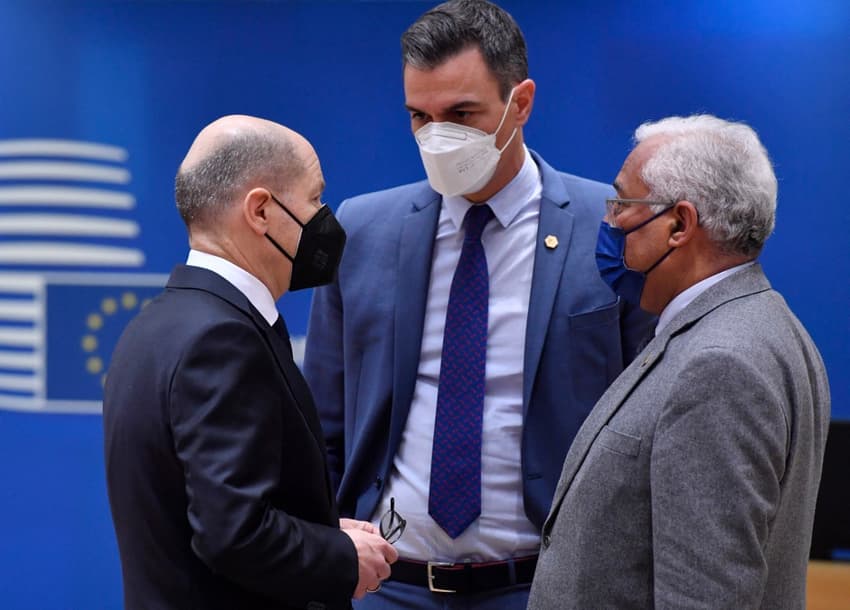Leaders of Germany, Spain and Portugal urge French to vote for Macron

The leaders of Germany, Portugal and Spain on Thursday urged France to back centrist President Emmanuel Macron against far-right leader Marine Le Pen in elections this weekend, in a highly unusual intervention in the domestic politics of a fellow EU state.
The run-off vote on Sunday is "for us not an election like others," German Chancellor Olaf Scholz, Portuguese Prime Minister Antonio Costa and Spanish Premier Pedro Sanchez wrote in the Le Monde daily
France faces a "choice between a democratic candidate... and a candidate of the extreme right who openly joins ranks with those who attack our liberty and democracy," they said.
They expressed hope the French will choose a France that has been a "beacon of democracy".
"It is this France that is also on the ballot paper on April 24th," they said.
The three leaders said that populists and extreme right figures across Europe had turned to Russian President Vladimir Putin as an "ideological and political model and echoed his nationalist claims."
Le Pen met Putin in the Kremlin in 2017 and accepted Russia's 2014 annexation of Crimea, while her party also took a loan from a Russian-Czech bank.
She has since changed her tone and condemned the invasion, a stance she repeated on Wednesday night's TV debate with Macron.
But the three leaders said: "We should not forget it, even if these politicians now try to take their distance from the Russian aggressor."
Comments (1)
See Also
The run-off vote on Sunday is "for us not an election like others," German Chancellor Olaf Scholz, Portuguese Prime Minister Antonio Costa and Spanish Premier Pedro Sanchez wrote in the Le Monde daily
France faces a "choice between a democratic candidate... and a candidate of the extreme right who openly joins ranks with those who attack our liberty and democracy," they said.
They expressed hope the French will choose a France that has been a "beacon of democracy".
"It is this France that is also on the ballot paper on April 24th," they said.
The three leaders said that populists and extreme right figures across Europe had turned to Russian President Vladimir Putin as an "ideological and political model and echoed his nationalist claims."
Le Pen met Putin in the Kremlin in 2017 and accepted Russia's 2014 annexation of Crimea, while her party also took a loan from a Russian-Czech bank.
She has since changed her tone and condemned the invasion, a stance she repeated on Wednesday night's TV debate with Macron.
But the three leaders said: "We should not forget it, even if these politicians now try to take their distance from the Russian aggressor."
Join the conversation in our comments section below. Share your own views and experience and if you have a question or suggestion for our journalists then email us at [email protected].
Please keep comments civil, constructive and on topic – and make sure to read our terms of use before getting involved.
Please log in here to leave a comment.